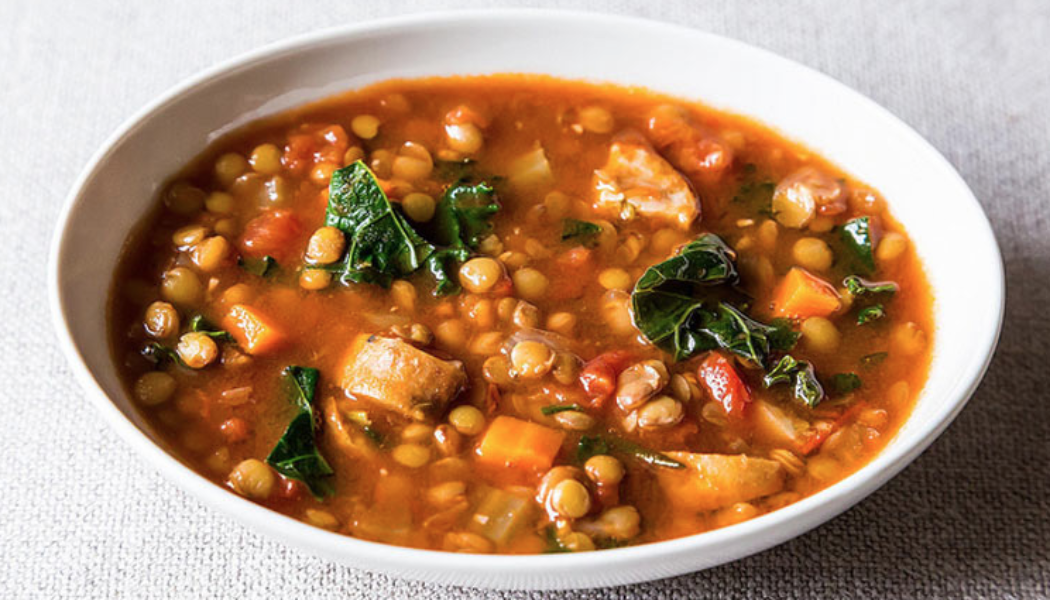Ayurvedic Tips
7 Tips For A More Relaxing Evening – An Ayurvedic Evening Routine
7 Tips For A More Relaxing Evening It’s no big secret: for many of us, it’s extremely difficult to unwind — especially after a long day of answering emails, attending meetings, taking phone calls, taking care of kids or pets, and battling traffic on the way to and from our jobs. It seems increasingly difficult to find the “off” switch once we enter our personal sanctum — home, at the end of the day. The advent of technology and electronics that multitask our schedules is great in one way: they provide some efficiency and ease in checking off those ever-increasing priorities from our to-do lists. However, they can also spur a disconnect between mind/body/spirit, and aggravate Vata and Pitta — turning us into scattered, unfocused versions of ourselves (especially in the all-but-inevitable ev...
Ayurveda Oil Massage [Snehana & Abhyanga]
Ayurveda Oil Massage The ancient Sanskrit word “Sneha” means compassion and the word “Snehi” refers to a loving friend. Daily oil massage [snehan] implies making a person loving by unfolding the healing qualities innate to the human body. In fact, Charaka – the ancient scholar of Ayurveda states that if you really want to bring happiness and joy to a client, don’t try to discuss their problems but do an oil massage and all the problems will simply dissolve. “Love is oily, soft, and gentle.” – Dr. Vasant Lad The skin provides the ability to heal through touch. The healing touch may include various modalities of healing such as massage. Ayurveda describes in great detail the benefits of daily oil massage. Not only is massage comforting to the body but essential for ...
Want Good Karma? Then Do Your Dharma.
Want Good Karma? Then Do Your Dharma. According to Ayurveda, every human being has four basic responsibilities. The four responsibilities are dharma [righteous actions], artha [wealth], kama [desire] and moksha [liberation]. Ultimately, these four responsibilities provides the seeker the highest ideal of eternal bliss while enjoying the worldly joys. Prithivim dharmana dhritam – Mahabharata “This world is upheld by dharma.” The Four Basic Responsibilities Dharma is the first responsibility. Dharma is the path of righteousness and living according to the codes of conduct – living truth. Want good karma? Then do good dharma. Artha is the next responsibility which is to acquire life’s basic needs – food, shelter, and clothing. One meaning of artha is mone...
Awareness – The Mirror Of Life
Awareness – The Mirror Of Life The mind can either be a beautiful servant or a dangerous master [Osho]. It’s fascinating that in a world of change, one of life’s greatest challenges is simply to sit still and to do absolutely nothing. Ayurveda – ‘The Science Of Life’, talks a great deal about meditation and cultivating a sense of moment-to-moment awareness. mind [noun] a beautiful servant, a dangerous master. “The Troubled Mind” According to the wisdom of Ayurveda, the mind is present throughout the body permeating every cell and that every cell of the body is the center of awareness. Likewise, “Prana” – ‘the vital life force’, governs all communication of the body and mental confusion arises due to repressed t...
Ayurvedic Daily Routine: Oleation + Self Massage [Abhyanga]
Ayurvedic Daily Routine – Oleation & Abhyanga Ayurveda takes pride in oleation therapy where we can apply oil to every part of our body, inside and out. As we enter into Vata Season we enter into a period of dryness and coldness. The quality is light and we can feel ungrounded. Due to the dryness and coldness the orifices, especially those that are exposed to the elements are susceptible to these qualities and become compromised causing various conditions and creating a forum for disease to start. The first line of defense of the body is the skin. It covers us from head to toe and lines all the orifices; eye, ears, nose, digestive tract from mouth to rectum. Ayurveda suggests that we keep these areas lubricated throughout the winter for our protection and immunity. Regula...
Autoimmune Conditions [Rheumatoid Arthritis]: An Ayurvedic Perspective + Anti-Inflammatory Turmeric Sun Dressing Recipe
Autoimmune Conditions In essence, autoimmunity is when the body attacks itself. The function of the immune system is to help protect you from disease. However, when the immune system doesn’t function properly it can mistakenly identify your own bodily tissue as an invader and therefore mount an attack – the immune response! Main Factors Of Health … The concept of health according to the ancient science of Ayurveda is explained in terms of healthy digestion [agni], balanced doshas [vata–pitta–kapha], preventing ama [toxins], and preserving ojas [vital essense of life]. When all these factors are balanced then it’s said that the person will be strong, healthy, and live a long and happy life. “Let food by thy medicine and medicine thy food.”– Hippocrates Health...
An Ayurvedic Purification Purge [Virechana]
An Ayurvedic Purification Purge According to the ancient teachings of Ayurveda, there are three doshas called vata, pitta, and kapha. These three doshas act as the guiding principles that keep all our bodily functions balanced and healthy. “Health results from the natural, balanced state of the doshas. Therefore, the wise try to keep them in their balanced state.” – Charak Samhita Imbalanced Doshas Each of the three doshas are present throughout the body. They govern our physiology and all activities of the body, mind, and emotions. Ayurveda is a holistic science and recognizes that the whole is greater than the sum of its parts. That said, when the doshas become imbalanced it affects the whole body. Likewise, when the doshas become aggravated by various factors such as poor diet, ...
Healthy Living With Ayurveda
Healthy Living With Ayurveda “Samadosha, samagnischa samadhatumala kriyaha prasanna atmenindriya manaha swasthya ityabhidheeyate” Acharya Susruta has described the features of a healthy person in the above quote. It follows that the doshas must be in equilibrium, the digestive fire must be in a balanced state and the tissues (dhatus) and malas (wastes) must work in a normal state. The sensory and motor organs and mind, atma must be also in a pleasant state. Such a person is called a healthy person or “Swastha”. Samadosha: The doshas that are present in the body and mind, namely vata, pitta and kapha, must be in a balanced state in order to keep a person healthy. When the balance of the doshas is disturbed, either aggravated or decreased (vitiated) it produces a state of Dosha V...
Ayurvedic Nutrition Tips For Autumn + Wilted Greens Lentil Soup Recipe
Ayurvedic Nutrition Tips For Autumn Autumn brings shorter days, longer nights, and cooler weather which invites a new menu of seasonally appropriate foods – ultimately to keep the body well-balanced. Autumn is considered a transition period characteristic of being dry, light, cool, rough and windy – all which naturally increase vata conditions [i.e. dry skin, constipation, arthritis, stiffness of the joints, rheumatism]. Seasonal Considerations For Autumn: – eat warming, soothing, and easily digestible meals – eat foods which are primarily sweet, sour and salty in taste – drink warming herbal teas such as ginger, cinnamon and cardamom tea – keep warm and stay out of strong winds – do regular yoga, meditation, and pranayama breathing exercises Ayurvedic Recipe For “Tridos...
“Ice Is Not So Nice” – Ancient Wisdom Regarding Ice
“Ice Is Not So Nice” We add it to beverages. We use it to chill food. We apply it topically and we use it in food, like smoothies. The question is, is ice the best for our health? In traditional Chinese medicine, ice is considered a poison when ingested. Ayurveda says the same. Why would these age-old medical systems say something against what so many of us have found great pleasure in? I mean, we use ice in smoothies, cocktails, chilled water with our meals and other similar instances. Why would ice be looked down upon? According to Ayurveda, ice is an astringent that causes vasoconstriction, or narrowing of the blood vessels. When we ingest ice, it enters into the cavern of the mouth, which has a direct relationship to important organs in the brain, such as the hypo...
Emotional Eating – An Ayurvedic Perspective + Tips To Cheat Your Cravings
Emotional Eating – An Ayurvedic Perspective “Food nourishes the body; love nourishes the Soul.” – Dr. Vasant Lad, Ayurvedic Physician “Emotional Eating”… Overeating may occur occasionally and often due to various reasons. However, overeating often takes place because of emotional factors. From an Ayurvedic perspective, when there is undue stress or other emotional factors this can increase the uncoordinated movement of ‘prana vata’ within the mind. This increased movement of prana can then stimulate the gastric fire [Agni] – which produces the “experience of hunger”. However, this experience of hunger may not actually be real but rather an emotional craving for nourishment [i.e. love]. What Am I Hungry For? In a recent book, ‘What Are You ...
Ayurveda & The Wisdom Of The Doshas
Ayurveda & The Wisdom Of The Doshas According to the ancient teachings of Ayurveda, there are three doshas called vata, pitta, and kapha. We can think of these three doshas as the guiding principles that keep all our bodily functions balanced and healthy. “Health results from the natural, balanced state of the doshas. Therefore, the wise try to keep them in their balanced state.” – Charak Samhita The Wisdom Of The Doshas Each of the three doshas are present throughout the body. They govern our physiology and all activities of the body, mind, and emotions. Not only do the doshas govern our bodily functions but from a more truer perspective – they are the governing principles of Nature. The ancient science of Ayurveda understands the doshas as being a direct expression...


![Ayurveda Oil Massage [Snehana & Abhyanga]](https://healthyayurveda.com/wp-content/uploads/2015/12/Screen-Shot-2015-12-09-at-10.02.57-AM-1050x600.png)
![Ayurveda Oil Massage [Snehana & Abhyanga]](https://healthyayurveda.com/wp-content/uploads/2015/12/Screen-Shot-2015-12-09-at-10.02.57-AM-80x80.png)




![Ayurvedic Daily Routine: Oleation + Self Massage [Abhyanga]](https://healthyayurveda.com/wp-content/uploads/2015/11/Screen-Shot-2015-11-05-at-12.41.11-PM-1050x600.png)
![Ayurvedic Daily Routine: Oleation + Self Massage [Abhyanga]](https://healthyayurveda.com/wp-content/uploads/2015/11/Screen-Shot-2015-11-05-at-12.41.11-PM-80x80.png)
![Autoimmune Conditions [Rheumatoid Arthritis]: An Ayurvedic Perspective + Anti-Inflammatory Turmeric Sun Dressing Recipe](https://healthyayurveda.com/wp-content/uploads/2015/11/Screen-Shot-2015-11-04-at-11.47.05-AM-1050x600.png)
![Autoimmune Conditions [Rheumatoid Arthritis]: An Ayurvedic Perspective + Anti-Inflammatory Turmeric Sun Dressing Recipe](https://healthyayurveda.com/wp-content/uploads/2015/11/Screen-Shot-2015-11-04-at-11.47.05-AM-80x80.png)
![An Ayurvedic Purification Purge [Virechana]](https://healthyayurveda.com/wp-content/uploads/2015/11/1.-Vrechana-Image-1050x600.png)
![An Ayurvedic Purification Purge [Virechana]](https://healthyayurveda.com/wp-content/uploads/2015/11/1.-Vrechana-Image-80x80.png)









